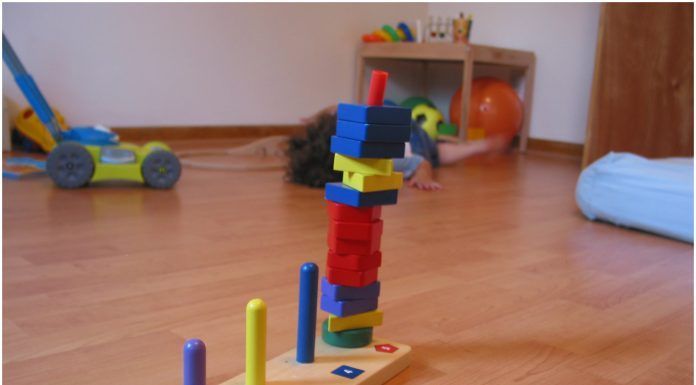By Zahra Azizi
Autism or ASD (Autism Spectrum Disorder) is a developmental disability that affects a person’s perception of and interaction with the world. It is not an illness or a disease, but rather a lifelong condition.
It is a spectrum condition, meaning that while all autistic people share specific difficulties, disability affects them in different ways. Most autistic people have learning disabilities, yet some also struggle with mental health issues.
Autism affects one in seven people. Seven in 10 people with ASD struggle with mental health issues including anxiety and depression. Although there is no cure for autism, those affected can live fulfilling lives if they receive professional help and community support.
There are two primary treatments which help those with autism to reduce symptom severity and maladjusted behavior, namely educational interventions and medical management. Behavior therapy can help children with ASD to develop social skills, become self-reliantm and ultimately hold jobs as adults. Current treatments include applied behavior analysis (ABA), developmental models, structured teaching, speech, and language therapy, social skills therapy, and occupational therapy.
While most health professionals focus on early behavioral development, which includes parental involvement and unique educational methods, some doctors also prescribe psychoactive drugs or anticonvulsants, antidepressants, stimulants, and antipsychotics to children diagnosed with ASD.
Although the Iranian government has made progress in providing support to many institutions for children with special needs, it has neglected those with ASD and does not provide educational and medical aid to their families. While most health experts believe that there are between 320,000 to 700,000 people with autism in Iran, official reports put the number at around 8,000.
Hossein Nahvinejad, the deputy director of the State Welfare Organization of Iran’s Office for Rehabilitation, said: “Doctors should ideally detect childhood autism by the age of 18 months. However, poor medical training and a lack of standardized tests are the main reasons why health professionals do not diagnose the condition early in childhood. Parents enroll many children with autism in regular schools, where they do not receive the specialized care and education that they need.”
There are few schools for autistic children in Iran. Children with moderate autism can perform relatively well in regular schools, but not those whose condition is severe. Schools for children with autism are small in number and exist only in major cities including Tehran, Isfahan, and Mashhad. Families who live in other parts of the country have no option besides enrolling their children in these schools.
Maryam, a mother of three autistic children, had no choice but to enroll them in a school for children with special needs in Mashhad, capital of the northeastern province of Khorasan Razavi, which is nearly 900 miles from the western province of Kermanshah where she and her family live.
Maryam’s situation is not unique. Many parents around the country are in the same predicament. Most families cannot shoulder the exorbitant cost of special education for children who live with ASD. Sometimes, parents take their children out of school because they cannot afford the expenses.
There are not enough trained teachers, behavioral consultants, and therapists in schools in Iran. The absence of behavior intervention plans and psychological testing, which give explicit information about a child’s characteristics including repetitive behavior, sensory needs, and language and social deficits, further exasperate an already critical situation.
Speaking at the International Autism Conference held in January 2019 in India, Majid Ghadami, the director of Iran’s Special Education Organization, said: “There is a general lack of scientific knowledge regarding childhood autism among doctors, healthcare professionals, and educators in our country.”
Sometimes, untrained teachers who cannot detect early signs of autism might physically punish a student who is acting up in the classroom which further damages a child with a mental health issue. Many schools do not hire behavioral consultants because of budgetary constraints.
There are also only a handful of state-funded treatment centers for autistic children in Tehran, Mashhad, and Isfahan. Many families have to travel long distances to these centers, where their children receive a psychological evaluation and speech and language therapy. Most often, children do not get the help they need because their families cannot afford the cost of travel to other cities.
The Iranian government does not help families to pay for their children’s speech and behavioral therapy, which costs around $700 a month. Nor does it subsidize the cost of psychoactive drugs, anticonvulsants, antidepressants, stimulants, and antipsychotics which children diagnosed with ASD need.
Nor does the government provide occupational therapy for adults diagnosed with ASD and Asperger’s syndrome, a form of autism which affects the way a person communicates and relates to other people. People with Asperger’s syndrome may experience challenges such as specific learning difficulties, anxiety or other conditions. They do not, however, have a learning disability, because they have average or above-average intelligence.
There are only a few assessment centers with full-time healthcare professionals and clinical psychologists helping adults with autism and Asperger’s syndrome. Although labor laws in Iran require government agencies to hire a certain number of people with disabilities and special needs, most employers do not comply with those guidelines. As a result, the majority of autistic people are unemployed. In addition, only a small percentage of Iranian parents whose children live with autism can work full time. The majority of them say they do not have enough support to work as much as they need to.
It costs, on average, three times as much money to raise a child with a severe disability than it does to raise a non-disabled one. The Iranian government can address the problem by establishing more special education schools, treatment centers and training programs for health professionals. It can also provide financial aid and disability living allowance to cover the cost of educational interventions, medical management and behavioral therapy for children who live with autism.
[Translated from Persian by Fardine Hamidi]


